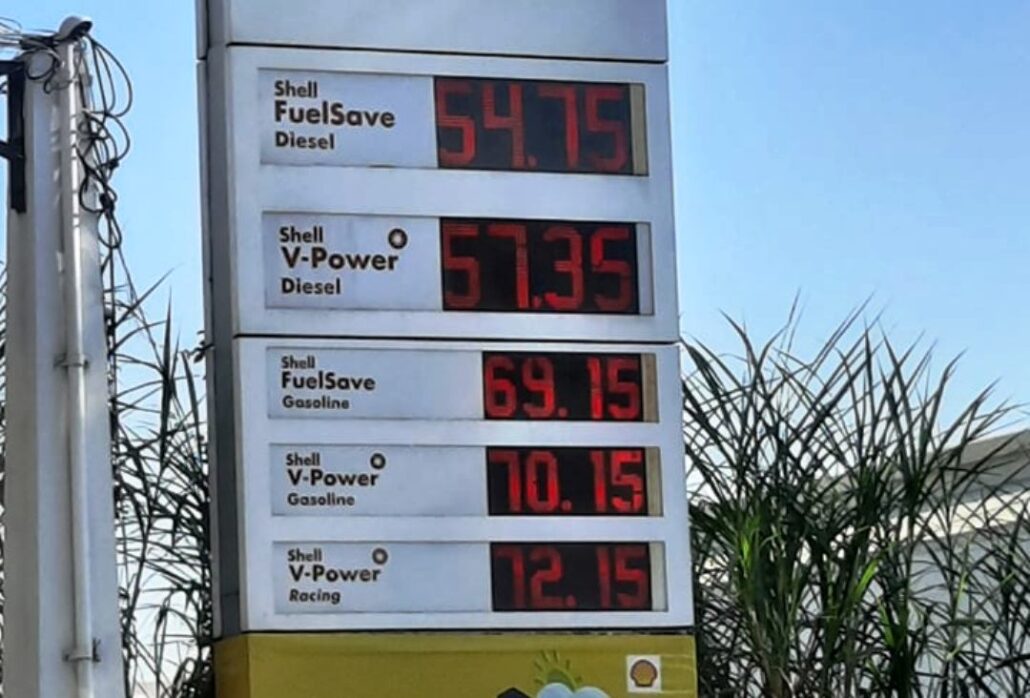Suspending TRAIN oil taxes will lower oil prices and ease inflation—IBON
Supporting calls to suspend oil excise taxes, research group IBON said that this will go far in immediately easing the burden of rising prices on ordinary Filipinos. The group added that revenue losses can be compensated by similarly suspending recent corporate tax cuts.
IBON said that these measures can be the start not just of a more progressive tax system but also a prelude to better regulation and control over the country’s oil industry.
Amid tight supplies and later increasing demand, global oil prices have been generally rising since the pandemic started including for eight straight weeks now.
The Organization of Petroleum Exporting Countries (OPEC) has cut production, the US is not releasing oil from its Strategic Reserve, and China instructed its energy companies to secure supplies for the coming winter.
From August 23 to October 15, the price per barrel of Dubai crude increased by US$15.95, Mean of Platts Singapore (MOPS) gasoline by US$19.05, and MOPS diesel by US$22.65.

The country is heavily reliant on oil imports so the global oil price hikes are causing domestic oil prices to follow suit. In just the past eight weeks, the price per liter of diesel hiked by Php8.70, gasoline by Php7.25, and kerosene by Php8.10.
This disproportionately burdens poor oil consumers and Filipino households, IBON said.
Just from the eight weeks of hikes, for instance, jeepney drivers have to pay Php95.70 more for 11 liters of diesel per day. Farmers have to pay Php1,653 more for 190 liters of diesel per hectare per cropping season.
Rising oil prices increases the prices of basic goods and services, IBON stressed, and fuels inflation. This is worst for the poorest 30% of the population for whom inflation is higher than the national average.
Inflation across many commodity groups is already much higher now than last year. Food inflation increased from 1.8% in the whole of 2020 to 5.4% in September 2021. Over that same period, inflation in housing, water, electricity, gas and other fuels increased from 2% to 3.4%, and in clothing and footwear from 2.5% to 2.7 percent. Inflation in health, transport and education have fortunately moderated.
IBON said that suspending the oil excise taxes under Tax Reform for Acceleration and Inclusion (TRAIN) will provide immediate relief. This will lower the price per liter of diesel by Php6.72 and of gasoline by Php6.33.
It will also remove Php3 from the price per kilo of liquefied petroleum gas (LPG), lowering the price of an 11-kilo tank by Php33 not including VAT.
The price per liter of diesel can go down from some Php46.33 to Php39.61, gasoline from some Php55.51 to Php49.18, and LPG from some Php968.90 to Php935.90.
IBON also said that oil revenue losses can be offset by also suspending corporate income tax (CIT) cuts under the Corporate Recovery and Tax Incentives for Enterprises Act or CREATE.
The group noted that the government projects revenue losses of Php115.8 billion in 2021 and Php101.8 billion in 2022 from CREATE’s CIT cuts.
Reducing indirect consumption taxes such as on oil and increasing direct taxes on income makes the tax system more progressive, said IBON.
The group stressed that these immediate measures are doable and will help lower domestic oil prices and ease inflationary pressures, substantially mitigating the burden of global oil price hikes on the poorest.
Longer-term solutions should also start to be seriously considered, said IBON.
IBON stressed that more effective regulation and control of the oil industry is the only way to sustainably lower oil prices.
This can start by ensuring transparency in oil firms’ price-setting and active state intervention to prevent overpricing.
IBON pointed out that oil firms have had too much freedom to raise domestic oil prices opaquely and at will since the Oil Deregulation Law or Republic Act 8479, often changing pump prices by more than warranted by global oil price increases.
IBON also said that renationalization of oil firms such as Petron will increase the government’s capacity to intervene in the industry, with the strategic view of eventually nationalizing the majority of the oil industry. #
= = = =
Kodao publishes IBON articles as part of a content sharing agreement.
